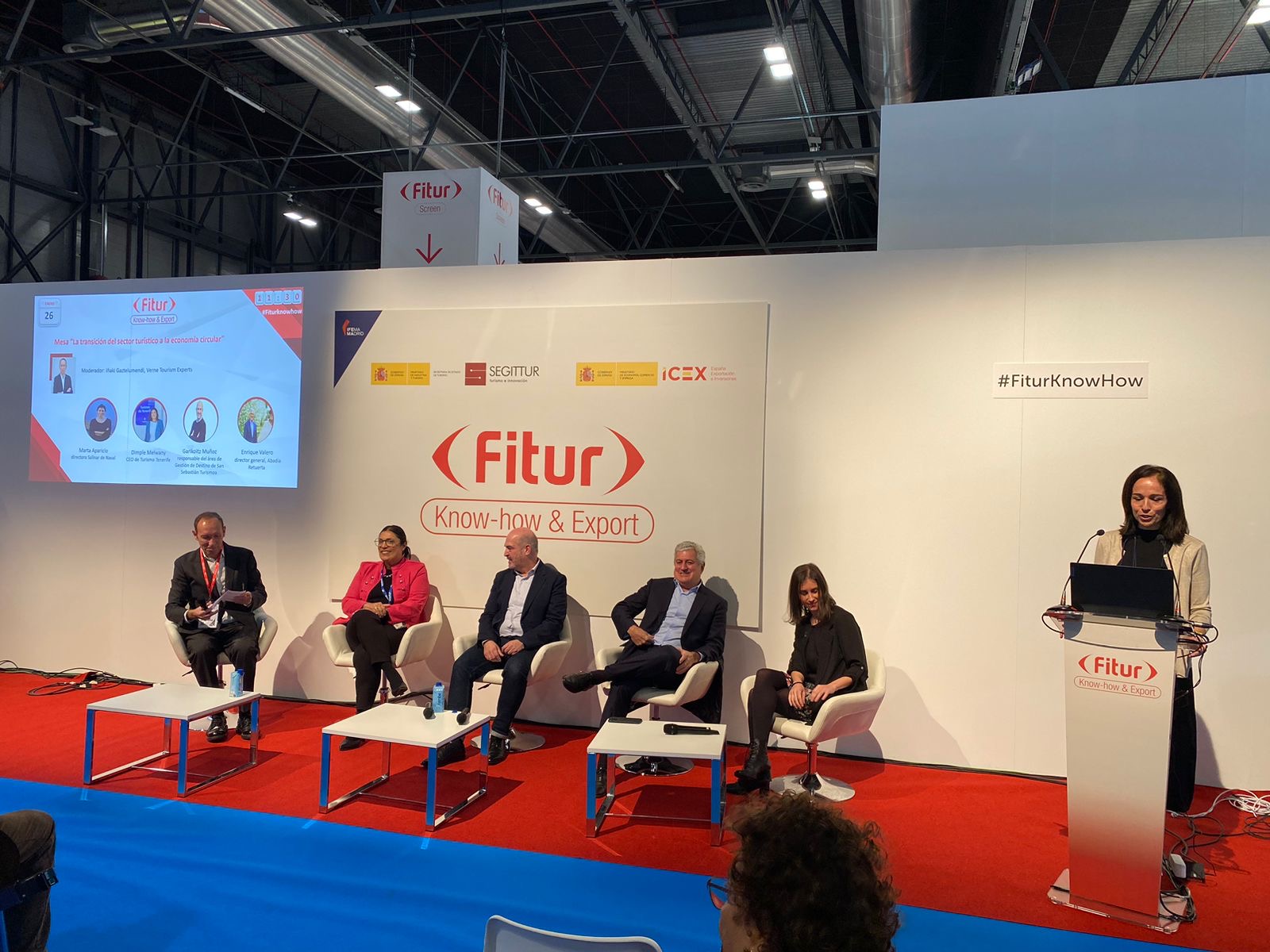Innovation and tourism trends: Eurochile participates in FITUR 2024
The International Tourism Trade Fair (FITUR) is one of the most prominent events in the global tourism industry, held annually in Madrid, Spain. With more than 69,000 square metres of exhibition space, it attracts a wide range of participants, including industry professionals, representatives of tourism destinations, hotels, travel agencies, airlines and tourism technology companies.
FITUR provides a space for professionals and experts to meet, share knowledge, establish business contacts and promote tourism destinations. It also provides opportunities for countries and regions to showcase their tourism offerings, promote their destinations and participate in networking activities.
The fair is made up of various sections and activities, including company exhibitions, destination presentations, seminars, conferences, workshops and networking events. These activities address a wide range of topics, such as sustainability, technology, adventure tourism, cultural tourism, gastronomic tourism, among others, reflecting emerging trends in the tourism industry.
On behalf of the Eurochile Business Foundation, Marilú Mansilla, in charge of projects in the area of Sustainability and Circular Economy, participated in this year’s edition of FITUR, highlighting the innovations and developing technologies that are being carried out in the tourism industry.
The 2024 edition of the fair lasted four days, from 24 to 28 January, with the inauguration presided over by the visit of King Felipe VI, who marked the start of the activities. Throughout the day, there were spaces to learn about the latest innovations and trends in tourism, with an emphasis on the importance of sustainability, the integration of Artificial Intelligence (AI) in the sector and the change of name of the World Tourism Organization (UNWTO) to “UN Tourism”, with the aim of advancing the UN Sustainable Development Goals. These were some of the key points discussed in each instance of the event.
The future work on tourism development was also highlighted, which should focus on sustainability, with a special emphasis on the incorporation of circular economy principles by tourism companies. In this sense, European public authorities are demanding greater circularity from these companies, in line with the goals and obligations of the European Green Pact. These obligations are mainly regulatory and restrictive, which is pushing companies to incorporate more sustainable practices.
Among the challenges and priority issues, the decarbonisation of the tourism sector and the integration of the circular economy are highlighted. In addition, the importance of ensuring the long-term sustainability of tourism destinations is underlined.
One of the innovations highlighted at FITUR was the integration of AI in the tourism sector, with the aim of simplifying the tasks of companies in the sector, such as organising data, interacting with users and creating unique experiences, among others.
In this sense, Marilú Mansilla adds that, “the incorporation of artificial intelligence in tourism is booming, especially through predictive software, customer service and various digital tools. These tools will facilitate the user experience when choosing between tourism services offered by different companies within the value chain”.
In conclusion, participation in events such as FITUR represents an invaluable opportunity for Eurochile to gain knowledge on the latest innovations in the European tourism sector, establish key connections with companies in the sector and explore ways to adapt these practices in Chile. This exchange of ideas and experiences is fundamental to foster the transition towards sustainability in SMEs in the sector, thus strengthening national tourism development.

